第32章 II(16)
Nor does it follow, even when a chair is founded in connection with a well-known institution, that it has either a salary or an occupant; so that it may be, and probably is, a mere harmless piece of toleration on the part of the government if a Professorship of Homoeopathy is really in existence at Jena or Heidelberg. And finally, in order to correct the error of any who might suppose that the whole Medical Profession of Germany has long since fallen into the delusions of Hahnemann, I will quote two lines which a celebrated anatomist and surgeon (whose name will occur again in this lecture in connection with a very pleasing letter) addressed to the French Academy of Medicine in 1835. "I happened to be in Germany some months since, at a meeting of nearly six hundred physicians; one of them wished to bring up the question of Homoeopathy; they would not even listen to him." This may have been very impolite and bigoted, but that is not precisely the point in reference to which I mention the circumstance.
But if we cannot easily get at Germany, we can very easily obtain exact information from France and England. I took the trouble to write some months ago to two friends in Paris, in whom I could place confidence, for information upon the subject. One of them answered briefly to the effect that nothing was said about it. When the late Curator of the Lowell Institute, at his request, asked about the works upon the subject, he was told that they had remained a long time on the shelves quite unsalable, and never spoken of.
The other gentleman, ["Dr. Henry T. Bigelow, now Professor of Surgery in Harvard University.] whose name is well known to my audience, and who needs no commendation of mine, had the kindness to procure for me many publications upon the subject, and some information which sets the whole matter at rest, so far as Paris is concerned. He went directly to the Baillieres, the principal and almost the only publishers of all the Homoeopathic books and journals in that city. The following facts were taken by him from the account-books of this publishing firm. Four Homoeopathic Journals have been published in Paris; three of them by the Baillieres.
The reception they met with may be judged of by showing the number of subscribers to each on the books of the publishing firm.
A Review published by some other house, which lasted one year, and had about fifty subscribers, appeared in 1834, 1835.
There were only four Journals of Homoeopathy ever published in Paris.
The Baillieres informed my correspondent that the sale of Homoeopathic books was much less than formerly, and that consequently they should undertake to publish no new books upon the subject, except those of Jahr or Hahnemann. "This man," says my correspondent,--referring to one of the brothers,--"the publisher and headquarters of Homoeopathy in Paris, informs me that it is going down in England and Germany as well as in Paris." For all the facts he had stated he pledged himself as responsible.
Homoeopathy was in its prime in Paris, he said, in 1836 and 1837, and since then has been going down.
Louis told my correspondent that no person of distinction in Paris had embraced Homoeopathy, and that it was declining. If you ask who Louis is, I refer you to the well-known Homoeopathist, Peschier of Geneva, who says, addressing him, "I respect no one more than yourself; the feeling which guides your researches, your labors, and your pen, is so honorable and rare, that I could not but bow down before it; and I own, if there were any allopathist who inspired me with higher veneration, it would be him and not yourself whom I should address."
Among the names of "Distinguished Homoeopathists," however, displayed in imposing columns, in the index of the "Homoeopathic Examiner," are those of MARJOLIN, AMUSSAT, and BRESCHET, names well known to the world of science, and the last of them identified with some of the most valuable contributions which anatomical knowledge has received since the commencement of the present century. One Dr. Chrysaora, who stands sponsor for many facts in that Journal, makes the following statement among the rest: "Professors, who are esteemed among the most distinguished of the Faculty (Faculty de Medicine), both as to knowledge and reputation, have openly confessed the power of Homoeopathia in forms of disease where the ordinary method of practice proved totally insufficient. It affords me the highest pleasure to select from among these gentlemen, Marjolin, Amussat, and Breschet."
Here is a literal translation of an original letter, now in my possession, from one of these Homoeopathists to my correspondent:--
"DEAR SIR, AND RESPECTED PROFESSIONAL BROTHER:
"You have had the kindness to inform me in your letter that a new American Journal, the 'New World,' has made use of my name in support of the pretended Homoeopathic doctrines, and that I am represented as one of the warmest partisans of Homoeopathy in France.
"I am vastly surprised at the reputation manufactured for me upon the new continent; but I am obliged, in deference to truth, to reject it with my whole energy. I spurn far from me everything which relates to that charlatanism called Homoeopathy, for these pretended doctrines cannot endure the scrutiny of wise and enlightened persons, who are guided by honorable sentiments in the practice of the noblest of arts.
"PARIS, 3d November, 1841:"
I am, etc., etc., "G. BRESCHET, "Professor in the Faculty of Medicine, Member of the Institute, Surgeon of Hotel Dieu, and Consulting Surgeon to the King, etc.